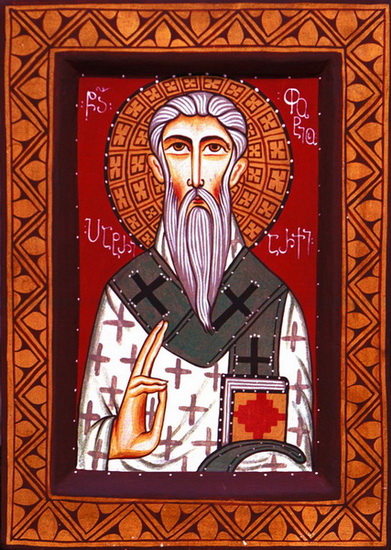St. Photios the Great: On the Filioque and the Confusion of Trinitarian Persons and the Divine Nature
15 Φεβρουαρίου 2010
Behold the excessiveness of this impiety. If the Father is a cause of the Spirit just as He is a cause of the Son, then the generation and the procession occur at the same time, because the Son is not begotten in an interval of time and the Spirit likewise proceeds without any interval of time. But if one says, as this impious and idle chatter does, that the “Spirit also proceeds from the Son” as if from the same cause, it could lead one to conceive of the nature as mutable and changing.
62.
Do you see the manifold flexibility of this ungodly thing? If, in accordance with the theological principles of the incorporeal and supernatural nature, the Son is begotten from the Father at the same time as the Spirit proceeds from the Father and the Son, then the former procession and the latter procession each belong to a completely different person of the eternal Trinity. But if this is so, then how are the distinctions of the causes, and the divine operations of the persons maintained? And why is division induced against the indivisible, simple and unitary Person of the Spirit? For the person comes before the distinctions in energies and operations, especially because it is supported by the evidence of the superior and supernatural Word. . . .
63.
In all that is said above if something is said of one thing in the
Godhead, and if this cannot be observed to be a property of the nature of the Almighty Trinity, then it is said of only one of the three Persons. But the procession of the Spirit cannot be contemplated of the more-than-nature unity of the Trinity. Consequently, it is understood to be about only one of the Three. But the reasons for holding such a doctrine must be examined. If the Spirit proceeds from the Son no earlier or later than the Son is begotten from the Father (or the Son’s generation and the Spirit’s procession are removed as far as possible from the normal meanings associated with these temporal terms), and if they both proceed from the Father, the Son by generation and the Spirit by a procession within this very same generation, and if thus the Spirit is brought into existence simultaneously with the Son, then the Son is begotten, but the Spirit will be both begotten and proceeding. He will be begotten because He proceeds simultaneously in the Son’s generation. But He will be proceeding, because the dual procession is permanent. Who could have been so insane as to be carried away into such impiety?
–St. Photios the Great, The Mystagogy of the Holy Spirit 61-63 (Holy Cross Orthodox Press 1987; tr. Joseph P. Ferrell)




